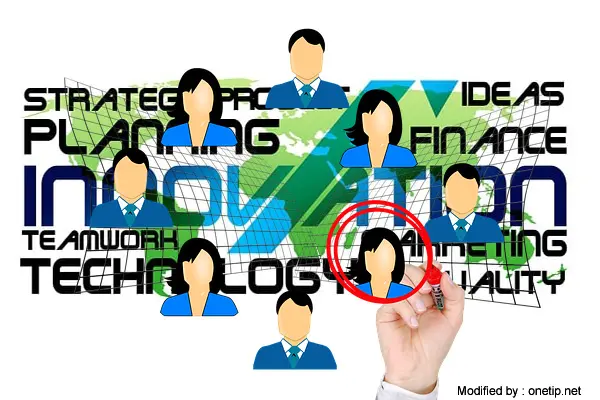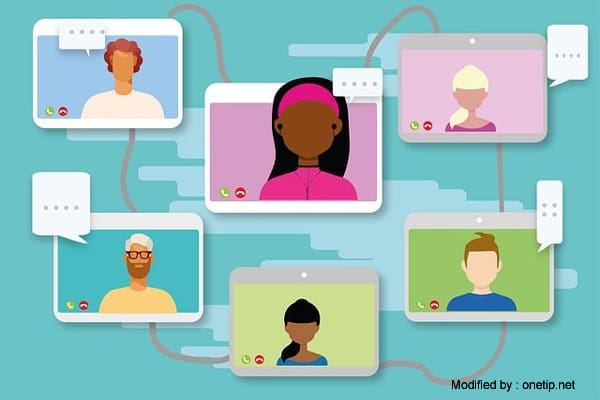Last modified 04/11/2025
🔍Tips for a Job Interview,
How to Prepare for a Job Interview:
10 Key Steps for Success

🔍 Do you want to stand out in your next job interview? How to land your dream job?: Master your job interview.
Getting your ideal job starts with one crucial step: standing out in your job interview. In today’s competitive job market, preparing for a job interview goes far beyond just reviewing your resume – it requires strategy, confidence and meticulous planning.
Whether you’re an experienced executive or just entering the job market, understanding what to do before a job interview can make the difference between rejection and a job offer.
This complete guide reveals the 10 key steps for successful interviews used by top recruiters and hiring managers. We’ll cover everything from how to research companies and anticipate tough questions, to perfecting your body language and follow-up techniques. You’ll learn how to:
- Transform nervous energy into confident responses
- Showcase your qualifications effectively
- Avoid common mistakes that eliminate 78% of candidates (according to LinkedIn data)
By implementing these tips for successful interviews, you’ll not only impress employers but also gain a competitive edge in your professional career. Let’s begin your path to interview mastery.
Follow this step-by-step guide with the tips for successful interviews that professional recruiters use.
#JobInterview #CareerTips #Employment #Recruitment #HR #ProfessionalCareer #CareerSuccess
📌 10 Key Steps for a Successful Interview
1. Research the Company Thoroughly
✅ Visit their website, social media and recent news.
✅ Keyword: “How to research a company before an interview”
2. Analyze the Job Profile
✅ Identify the key skills they’re looking for and prepare examples from your experience.
✅ Keyword: “How to align my resume with the position”
3. Prepare Answers to Common Questions
✅ Practice answers for:
- “Tell me about yourself”
- “What is your greatest weakness?”
- “Why should we hire you?”
✅ Keyword: “Perfect answers for interviews”
4. Choose Your Outfit in Advance
✅ Opt for professional style (even if remote, first impressions count).
✅ Keyword: “What to wear to a job interview”
5. Prepare Smart Questions for the Recruiter
✅ Example: “What are the team’s biggest current challenges?”
✅ Keyword: “Questions to ask at the end of an interview”
6. Do a Dress Rehearsal
✅ Record a video or ask for feedback from a colleague.
✅ Keyword: “How to practice for an interview”
7. Arrive 10-15 Minutes Early (In-person or Virtual)
✅ Avoid surprises by checking the route or internet connection.
✅ Keyword: “Punctuality in job interviews”
8. Bring Copies of Your Resume and References
✅ Even if digital, show organization.
✅ Keyword: “Documents to bring to an interview”
9. Control Your Body Language
✅ Maintain eye contact, upright posture and smile.
✅ Keyword: “Non-verbal language in interviews”
10. Send a Thank You Email
✅ Reinforce your interest 24 hours later.
✅ Keyword: “Follow-up after an interview”
🚀 Mistakes to Avoid
❌ Speaking badly about previous employers.
❌ Arriving late or unprepared.
❌ Not having questions for the interviewer.
🔍 Keyword List:
- “How to prepare for a job interview”
- “What to do before a job interview”
- “Tips for successful interviews”
- “Difficult questions in interviews”
- “How to make a good first impression”
💡 Conclusion: A successful interview depends on preparation, attitude and follow-up. If you follow these 10 key steps, you’ll increase your chances of getting the job.
📩 Would you like a downloadable template with the most common questions and how to answer them? Leave us a comment! 👇
The 15 Most Common Questions in Interviews for Top-Level Executives and How to Answer Them Successfully
🔍The Art of Executive Interviewing
In the competitive world of top executives, C-level position interviews are a unique challenge. According to McKinsey, 68% of candidates for management positions fail because they don’t properly prepare for these strategic conversations.
This article reveals the 15 most frequent questions in executive interviews and how to answer them to stand out among the top 1% of professionals.
#Recruitment #HR #ProfessionalCareer #ExecutiveLevel #ExecutiveSearch #Leadership #Headhunting #BusinessLeadership
🎯 15 Key Questions and Answer Strategies
1. “Describe your leadership style to us”
✅ Executive answer:
“My leadership is based on three pillars: strategic vision (ex: transformed X business in 2 years), team empowerment (reduced turnover by 40%) and measurable results (+Y% EBITDA). I adapt my style according to team maturity and business challenges.”
📌 Keyword: “Executive leadership examples”
2. “How would you handle a financial crisis in the company?”
✅ Winning structure:
- Quick diagnosis (cash flow analysis)
- Immediate measures (reduction of non-essential costs)
- Medium-term strategy (restructuring)
- Transparent communication with stakeholders
📌 Keyword: “Executive decision making”
3. “Why are you leaving your current position?”
✅ Professional approach:
“I’m looking for a challenge that matches my experience in [specific area], where I can add value to an organization like yours that [mention something specific about the company]. I’ve achieved [X] in my current role and now I’m looking for [Y].”
📌 Keyword: “How to justify an executive job change”
4. “Tell me about a failure and what you learned”
✅ Strategic answer:
“In 202X, we launched [product] without enough market testing. The result was 30% below projections. I learned that [lesson], which we applied in [subsequent success case] that exceeded goals by 25%.”
📌 Keyword: “Executive mistake management”
5. “How would you align your strategy with our vision?”
✅ Key preparation:
“Analyzing your annual reports, I would highlight 3 areas: 1) [Mention company initiative], where my experience in [X] would add value; 2) [Another specific point]; 3) [Third element]. I propose a diagnostic phase in the first 90 days.”
📌 Keyword: “Executive strategic alignment”
6. “How would you drive innovation in our organization?”
✅ Executive answer:
“I would implement a structured innovation framework: 1) Creation of interdepartmental think tanks (as I did at X company, generating 3 new product lines), 2) Dedicated R&D budget (15% in my last management), and 3) Controlled experimentation culture (fail-fast approach).”
📌 Keyword: “Innovation in executive management”
7. “Describe your experience in mergers and acquisitions”
✅ Winning structure:
“I’ve led 3 complete M&A processes (highlight one briefly: ‘In the acquisition of Y for Z million, we achieved 22% synergies in 18 months’). My approach has 4 phases: cultural due diligence, operational integration, key talent retention and transparent communication.”
📌 Keyword: “Executive M&A experience”
8. “How do you handle conflicts in the C-suite?”
✅ Strategic answer:
“I use the Thomas-Kilmann model adapted to senior management: 1) Hard data to depersonalize (ex: affected KPIs), 2) Professional facilitation when needed (I’ve used this technique on 3 occasions), and 3) Alignment with higher corporate objectives.”
📌 Keyword: “Executive conflict management”
9. “What is your philosophy for building executive teams?”
✅ Professional approach:
“I look for complementarity in 3 dimensions: 1) Technical skills (balance between operations/finance/marketing), 2) Cognitive styles (analytical vs. intuitive), and 3) Diverse experience (my last team had 4 nationalities). Chemistry is important, but results matter more.”
📌 Keyword: “Building executive teams”
10. “How would you measure your success in the first 100 days?”
✅ Quantifiable answer:
“My initial KPIs would be: 1) Complete diagnosis of the real state (not just reported), 2) Relationships established with the 20 key stakeholders, and 3) 3 quick-win initiatives implemented (in my current role I achieved X million in savings in this period).”
📌 Keyword: “Executive first 100 days”
11. “How do you balance short and long term results?”
✅ Balanced answer:
“I use the 70/20/10 framework: 70% resources to immediate priorities (ex: cash flow), 20% to medium-term initiatives (digital transformation), and 10% to disruptive projects (at my last company, this generated our most profitable product in 2023).”
📌 Keyword: “Executive time management”
12. “What experience do you have with board meetings?”
✅ Authoritative answer:
“I’ve presented to boards for 8 consecutive years. My approach is: 1) Reports submitted 72h in advance, 2) Clear strategic options (not just problems), and 3) Visual data (I developed a dashboard that reduced analysis time by 40%).”
📌 Keyword: “Executive-board relationship”
13. “How would you handle a cultural gap in international mergers?”
✅ Global answer:
“In the X-Y merger (real example), we implemented: 1) Binational teams in all key projects, 2) Cultural exchange program (200+ employees participated), and 3) Visible leadership traveling 50% of the time. Result: integration completed in 11 months vs. projected 18.”
📌 Keyword: “Executive cross-cultural management”
14. “Describe your worst business decision”
✅ Growth answer:
“Delaying digital transformation in 201X to prioritize quarterly results. The cost was losing 15% market share. Since then, I’ve implemented the ‘dual transformation’ model (Scott Anthony’s book) with excellent results in my current management.”
📌 Keyword: “Executive decision making”
15. “What question haven’t we asked that we should have?”
✅ Masterful closing:
“I would recommend asking: ‘What three metrics will define success in this role in 24 months?’ For this position, I would measure 1) [Relevant financial metric], 2) [Talent metric], and 3) [Strategic metric]. This would fully align our expectations.”
📌 Keyword: “Executive interview closing”
📊 Key Data for Executives (According to McKinsey)
- 83% of CEOs fail to clearly articulate their strategy
- Companies with diverse executive teams outperform by 35% in ROI
- 78% of managers don’t adequately prepare their success cases
📌 Keyword: “Executive hiring statistics”
🎯 Executive Preparation Checklist
- Prepare 3-5 case studies with concrete metrics ($$$, %, time)
- Research thoroughly: Annual reports, recent news, LinkedIn profiles of the committee
- Master executive storytelling: Problem-Action-Result (PAR)
- Prepare smart questions about strategy, culture, and expectations
- Practice with a high-level coach specialized in executive roles
📌 Keyword: “Preparation for C-level interviews”
💼 Key Skills They Will Evaluate
- Strategic thinking (ability to see the big picture)
- Crisis management (concrete examples of resilience)
- Transformational leadership (how to inspire teams)
- Financial results (impact metrics)
- Cultural adaptability (for multinational companies)
📌 Keyword: “Competencies for C-level executives”
🚫 Fatal Mistakes in Executive Interviews
❌ Speaking only in general terms without metrics
❌ Criticizing previous employers or teams
❌ Not researching the company deeply
❌ Showing lack of industry knowledge
❌ Not having smart questions for the committee
📌 Keyword: “Mistakes in executive interviews”
🔍 Keyword List:
- “Typical job interview questions”
- “Perfect answers for interviews”
- “How to answer tough interview questions”
- “Interviews for executive positions”
- “Preparation for C-level interviews”
💡 Conclusion: A successful executive interview requires strategic preparation, concrete examples, and the ability to articulate business value. These 15 questions and answers are your guide to excel in high-level selection processes.
My First Job Interview With No Experience:
Complete Guide for Recent Graduates
🔍 How to Ace the Interview Without Work Experience
Did you just graduate and are facing your first job interview? 72% of recruiters believe recent graduates need extra preparation to stand out (LinkedIn data). This article will give you basic interview tips, the most common questions, and effective answers to impress employers.
#FirstJob #RecentGrad #JobInterview #NoExperience #JobsForBeginners #CareerStart #YoungProfessionals #HR
🎯 10 Common Questions and How to Answer Them
1. “Why should we hire you with no experience?”
✅ Winning answer:
“While I lack formal work experience, my training in [your degree] gave me key skills like [mention 2-3 relevant ones]. Additionally, in my internships/university projects I achieved [concrete achievement], proving my ability to learn quickly and add value.”
📌 Keyword: “How to sell yourself without experience”
2. “Tell me about yourself”
✅ Effective structure:
- Academic background (highlight relevant achievements)
- Key skills (e.g., data analysis, teamwork)
- Passion for the industry/company (research beforehand)
📌 Keyword: “How to introduce yourself in an interview”
3. “What are your strengths and weaknesses?”
✅ Real example:
“My strengths are analytical skills (e.g., improved a process by 20% in my thesis) and adaptability (shifting priorities in group projects). For weaknesses, I’m working on delegating more but am already taking leadership courses.”
📌 Keyword: “Strengths for recent graduates”
4. “Where do you see yourself in 5 years?”
✅ Strategic answer:
“I want to grow in [industry/field], mastering technical and leadership skills. I’d love to do this at a company like yours that values [mention something specific about the company].”
📌 Keyword: “Career goals for beginners”
5. “How do you handle pressure?”
✅ Answer with a university example:
“During my final semester, I had to submit 3 final projects in one week while working on my thesis. I created a detailed schedule, prioritized tasks, and communicated constantly with professors. I delivered everything on time with top grades.”
📌 Keyword: “Stress management for beginners”
6. “What do you know about our company?”
✅ Researched answer:
“I know you’re leaders in [industry] and recently launched [specific project/innovation]. I was drawn to your focus on [company value/culture], which aligns with my interest in [mention something relevant from your studies].”
📌 Keyword: “Company research for interviews”
7. “Why did you choose this career?”
✅ Passionate answer:
“I’ve always been interested in [key aspect of your field]. During my studies, I confirmed this passion when [specific university experience]. Now I want to apply this knowledge in a practical setting like your company.”
📌 Keyword: “Career motivation for recent graduates”
8. “Describe a conflict and how you resolved it”
✅ Academic example:
“In a group project, we had creative differences. I organized a meeting to hear all ideas, created objective evaluation criteria, and we reached a combined solution. The project received top marks.”
📌 Keyword: “Conflict resolution without work experience”
9. “What sets you apart from other candidates?”
✅ Unique answer:
“My combination of [technical skill from your degree] and [soft skill like communication], shown when [concrete achievement]. Plus, my eagerness to learn is clear from [extra course/certification you’ve taken].”
📌 Keyword: “Differentiation in junior interviews”
10. “Do you have any questions for us?”
✅ Smart questions:
- “What would a typical day look like in this role?”
- “What development opportunities does the company offer recent graduates?”
- “What are the team/department’s upcoming challenges?”
📌 Keyword: “Questions to ask the interviewer”
📊 Key Data for Recent Graduates
- 85% of employers value soft skills over technical skills in junior candidates (ManpowerGroup)
- Candidates who mention specific academic projects are 40% more likely to be hired
- 63% of recruiters prefer specific examples over generalities
📌 Keyword: “Hiring statistics for recent graduates”
🎯 Last-Minute Checklist
✔️ Prepare 3-5 concrete examples from your academic life
✔️ Practice with a friend/family (record audio to improve!)
✔️ Bring copies of your CV, relevant diplomas, and portfolio if applicable
✔️ Prepare a folder with:
- Additional course certificates
- Professor recommendation letters
- Samples of standout work
📌 Keyword: “What to bring to a first interview”
💼 5 Basic Tips to Succeed
- Research the company: Visit their website, social media, and recent news.
- Prepare university examples: Projects, internships, volunteer work.
- Dress professionally: Even if casual, always polished.
- Arrive 15 minutes early: Whether in-person or virtual.
- Send a thank-you email: Within 24 hours.
📌 Keyword: “Preparation for first interview”
🚫 3 Mistakes to Avoid
❌ Saying “I don’t know” without explaining how you’d figure it out
❌ Speaking negatively about professors or classmates
❌ Having no questions for the recruiter
📌 Keyword: “Mistakes in no-experience interviews”
🔍 Keyword List:
- “My first job interview with no experience”
- “Tips for recent graduate interviews”
- “How to answer questions without work experience”
- “Typical questions for beginners”
- “Sample interview answers”
💡 Final Conclusion: Your lack of experience is an opportunity to show your potential, learning ability, and fresh perspective. Companies are looking for talent like yours!
📩 Need help with your recent graduate resume? Download our FREE professional template [link in bio] and take your job search to the next level. Comment “CV” for details! 👇
Related posts :
01: Best countries for Architects
02: Download lawyers professional profile & goals
03: Download resume profile samples
04: How to apply for internships
05: How to define effective professional objectives for your resume
06: How to find a job in Montreal
07: How to work in Dubai as a Doctor
08: How to write a professional sales profile
09: Job opportunities for Engineers in Dubai
10: Motivational messages to wish professional success
11: Professional goals for Architects
12: Professional goals for Engineers
13: Professional objectives of an Accountant for a cv
14: The highest paid Engineers in Canada
15: Tips for a job interview
16: What is the american citizenship exam like?
Image credits:
Job interview images:
Original image about job interview , courtesy of Pixabay.com. Modified by megadatosgratis.com
If you liked this page, support us by sharing it on Facebook, Instagram, Twitter, WhatsApp. You can also contribute to this portal by sending your job interview tips—they’ll be published for others like you!.


